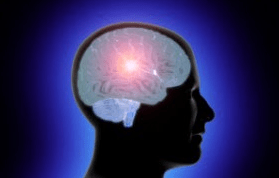new to the gluten free journey?
new to the gluten free journey?
 The following excerpt was taken from a recent ABC News story on gluten sensitivity based on interviews with Dr. Fasano and Dr. Peter Green (both of these doctors are leading celiac researchers):
…recognize gluten as an invader and unleash attacks on the small intestine, producing diarrhea, abdominal pain, along with fatigue, headaches and joint inflammation. Over time, celiac disease can lead to malnourishment, osteoporosis, neurological conditions, and in rarer cases, infertility or cancer.
An estimated 3 million Americans, or 1 in 133, have celiac disease (the source of the website name for Shepard’s campaign, 1in133.org). However, most of them aren’t aware of it, in part because it can strike at any time. Only 200,000 to 220,000 Americans have been diagnosed, said Dr. Alessio Fasano, director of the Center for Celiac Research at the University of Maryland in Baltimore, also a summit sponsor.
Gluten disruption of the nervous system can lead to nerve damage, neurological diseases, mental disorders and more.
Another 300,000 to 600,000 Americans avoid gluten because of wheat allergy, Fasano estimated. A third group within the growing gluten-free constituency comprises the 18 million to 20 million Americans who Fasano estimated suffer from gluten sensitivity, with pain, fatigue, headaches and brain fog much like that of celiac patients. However, his research has found that although they don’t make the same antibodies that define celiac disease, they have an inflammatory reaction to gluten.
An emerging group of people with gluten sensitivity have such psychiatric and neurological disorders as schizophrenia, ADHD, depression, and bipolar syndrome, and “a higher rate” of some antibodies, said Dr. Peter H.R. Green, director of the Columbia University Celiac Disease Center in New York, another summit sponsor.
Dr. Green was quoted as saying:
The following excerpt was taken from a recent ABC News story on gluten sensitivity based on interviews with Dr. Fasano and Dr. Peter Green (both of these doctors are leading celiac researchers):
…recognize gluten as an invader and unleash attacks on the small intestine, producing diarrhea, abdominal pain, along with fatigue, headaches and joint inflammation. Over time, celiac disease can lead to malnourishment, osteoporosis, neurological conditions, and in rarer cases, infertility or cancer.
An estimated 3 million Americans, or 1 in 133, have celiac disease (the source of the website name for Shepard’s campaign, 1in133.org). However, most of them aren’t aware of it, in part because it can strike at any time. Only 200,000 to 220,000 Americans have been diagnosed, said Dr. Alessio Fasano, director of the Center for Celiac Research at the University of Maryland in Baltimore, also a summit sponsor.
Gluten disruption of the nervous system can lead to nerve damage, neurological diseases, mental disorders and more.
Another 300,000 to 600,000 Americans avoid gluten because of wheat allergy, Fasano estimated. A third group within the growing gluten-free constituency comprises the 18 million to 20 million Americans who Fasano estimated suffer from gluten sensitivity, with pain, fatigue, headaches and brain fog much like that of celiac patients. However, his research has found that although they don’t make the same antibodies that define celiac disease, they have an inflammatory reaction to gluten.
An emerging group of people with gluten sensitivity have such psychiatric and neurological disorders as schizophrenia, ADHD, depression, and bipolar syndrome, and “a higher rate” of some antibodies, said Dr. Peter H.R. Green, director of the Columbia University Celiac Disease Center in New York, another summit sponsor.
Dr. Green was quoted as saying:
“Schizophrenia used to be called bread madness”
 It wasn’t very long ago that both Dr. Green and Dr. Fasano denied the connection between gluten and mental disease. Now both of them are publicly confirming the connection. This is fantastic news! Many patients with undiagnosed gluten sensitivity have mental and neurological disorders as a result of gluten exposure. This mainstream admittance that gluten intolerance and brain disruption are connected will help a lot of people get the proper diagnosis and the help that they need.
Know someone with bipolar, ADD/ADHD, schizophrenia, or autism? Share this article with them…
It wasn’t very long ago that both Dr. Green and Dr. Fasano denied the connection between gluten and mental disease. Now both of them are publicly confirming the connection. This is fantastic news! Many patients with undiagnosed gluten sensitivity have mental and neurological disorders as a result of gluten exposure. This mainstream admittance that gluten intolerance and brain disruption are connected will help a lot of people get the proper diagnosis and the help that they need.
Know someone with bipolar, ADD/ADHD, schizophrenia, or autism? Share this article with them…
Stay up-to-date with the latest articles, tips, recipes and more.

*These statements have not been evaluated by the Food and Drug Administration. This product is not intended to diagnose, treat, cure or prevent any disease.
If you are pregnant, nursing, taking medication, or have a medical condition, consult your physician before using this product.
The entire contents of this website are based upon the opinions of Peter Osborne, unless otherwise noted. Individual articles are based upon the opinions of the respective author, who retains copyright as marked. The information on this website is not intended to replace a one-on-one relationship with a qualified health care professional and is not intended as medical advice. It is intended as a sharing of knowledge and information from the research and experience of Peter Osborne and his community. Peter Osborne encourages you to make your own health care decisions based upon your research and in partnership with a qualified health care professional.
2 Responses
To further substantiate this article, it would be good to include the original article where this is quoted from:
http://abcnews.go.com/Health/Diet/gluten-free-diet/story?id=13482695&page=3
Thanks for sharing this!
Mike Roeder
Completely missed the link. Thanks Mike!